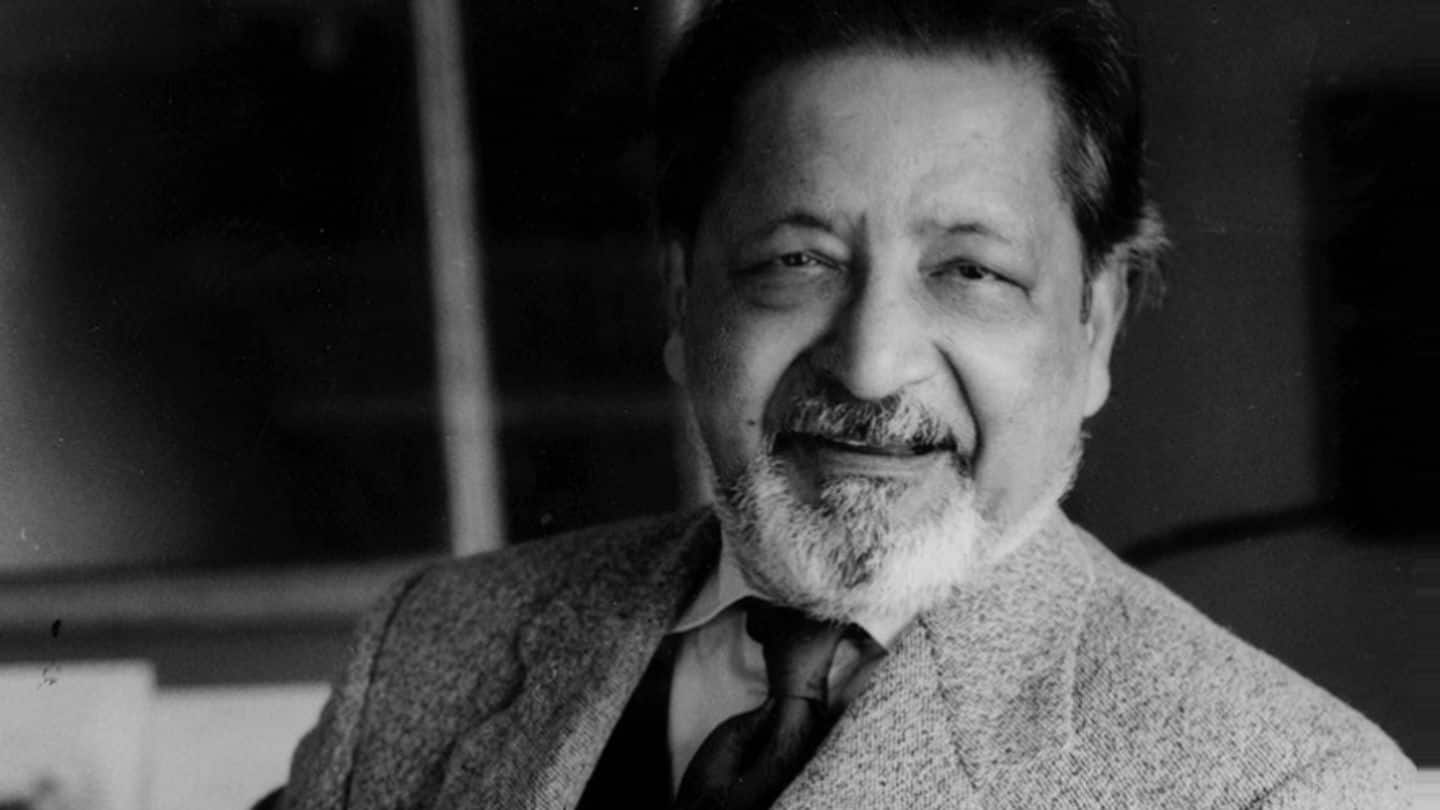
Nobel Prize-winning author VS Naipaul dies at 85
What's the story
Reputed author Sir VS Naipaul, who won the Nobel Prize in Literature, has died "peacefully" in London, his family has confirmed. He was 85.
Paying tribute, Sir Salman Rushdie wrote: "We disagreed all our lives, about politics, about literature, and I feel as sad as if I just lost a beloved older brother."
Naipaul had penned 30 hit books, including the masterpiece 'A House for Mr Biswas.'
Quote
His wife, Lady Naipaul's statement
His wife Lady Naipaul called him a "giant in all that he achieved". She said he died at his home in London "surrounded by those he loved having lived a life which was full of wonderful creativity and endeavor".
About
Naipaul, a brilliant student, suffered from depression and isolation
Vidiadhar Surajprasad Naipaul was born in Trinidad on August 17, 1932, to an immigrant family from India.
In the plantation community, his father Seepersad was a journalist, and introduced him to the world of Shakespeare and Charles Dickens.
Naipaul attended the Queen's Royal College and graduated with flying colors before arriving in Oxford. For him, it was a period of isolation and depression.
Career
Father's death pushed him deeper into his shell
Naipaul later moved to London with new wife Patricia Hale,but he grew more distant when his father died.
After abandoning two novels came his first three books- The Mystic Masseur (1957), The Suffrage of Elvira (1958) and Miguel Street (1959)- which hinted at his growing detachment.
Then came 'A House for Mr Biswas' (1961), which took three years to write. It remains his best-seller.
Do you know?
Book explored his relationship with his most important figure
The masterpiece was about Biswas, representative of Seepersad, while his son Anand symbolized Naipaul. In the book, Biswas alters his life while trying to build his own house and become the author of his own destiny. The book is rife with barely disguised self-analysis of the real father-son relationship.
Travel
A writer, a world traveler
For the next few years, he gave up literature, traveling across the Caribbean, India and Africa. His experiences formed the basis of future novels like 'An Area of Darkness' (1964), 'The Mimic Men' (1967) and 'In A Free State' (1971), winning the Man Booker and WH Smith prizes.
Amid peaks, he kept grappling with questions of his own identity and that of his father.
BBC
A knighthood and a Nobel Prize followed
Despite regular periods of writer's blocks, the hits kept coming: 'The Loss of Eldorado (1969), Guerillas' (1975), 'A Bend in The River' (1979), 'Among the Believers' (1981), 'The Enigma of Arrival' (1987) and 'A Way in the World' (1994).
A knighthood followed, before the Nobel Prize came in 2001.
Naipaul also briefly worked as a broadcaster for the BBC's Caribbean service during 1957-1961.
Controversies
Decades of public life meant several controversies
Naipaul built a world of controversies: he compared the "calamitous effect" of Islam to colonialism, said he could tell "within a paragraph or two" if the writing was by a woman, and had a 15-year feud with Paul Theroux.
Once he said he had been "a great prostitute man" during his marriage to Hale, and admitted to a long-running affair with Margaret Gooding where he was "very violent."
Tributes
Tributes pour in on social media
On his death, tributes poured in. Theroux said: "He was a scourge of anyone who used a cliché or an un-thought out sentence."
Author Laila Lalami called him a "wonderful stylist and a terrible curmudgeon."
Writer Jeet Heer called him a "powerful novelist" who " approached Conrad and even the shadow of Dickens."
Naipaul leaves behind his second wife, Pakistani journalist Nadira, and their daughter.